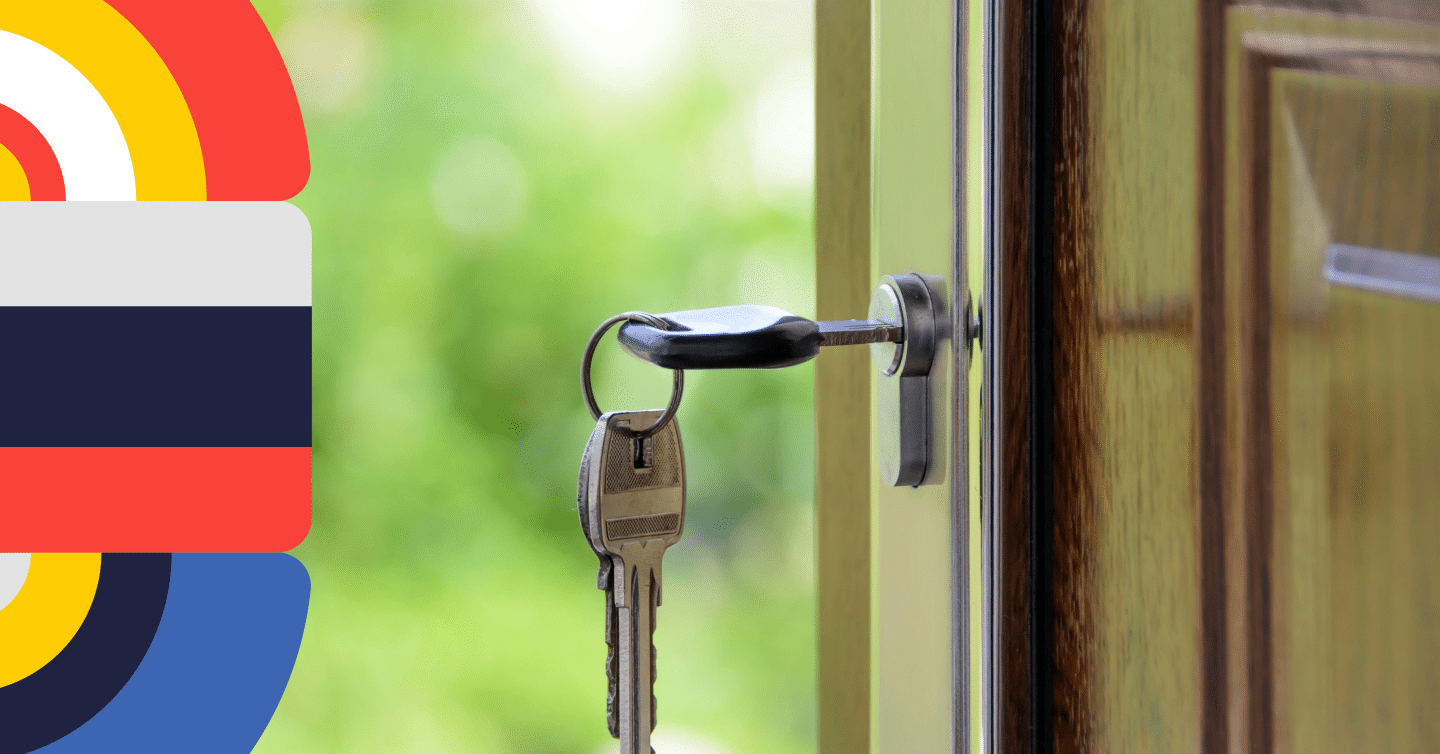How Much Mortgage Can I Get With A $70,000 Salary In Canada?

Salary alone does not set the mortgage amount that you can afford or qualify for. Lenders assess your affordability through a combination of salary, gross debt service (GDS) and total debt service (TDS) ratios, factor in property taxes and heating, and then apply the Canadian mortgage stress test at a higher rate than your actual contract. The result is that quick mortgage calculators, which often ignore taxes or utilities, can overstate what you can truly qualify for.
We’ll aim to demonstrate how much you can afford with a $70K income in realistic numbers and show the difference between what you can afford and what you can qualify for. We’ll also compare insured and uninsured paths across multiple interest rate scenarios so you can see how each input affects your mortgage loan amount.
Key Highlights
- Your mortgage approval on a $70K salary is constrained by GDS and TDS, not just salary.
- Down payment directly affects lending ratios and mortgage interest rates.
- Omitting realistic or real values for property taxes and heating costs inflates buying power and leads to approval shortfalls.
What Lenders Evaluate On A $70K Salary
A $70,000 salary is only the starting point. Lenders convert it to about $5,833 per month and then assess whether your housing and total debt payments fit within their lending guidelines. Mortgage underwriters will fully count the carrying costs of the property, not just the mortgage, and they review any recurring obligations on your credit report. High-ratio insured mortgages often allow slightly higher limits than conventional uninsured loans. The breakdown below shows exactly what lenders include in each ratio’s capped value when testing borrowers’ mortgage affordability.
Your gross monthly income is $70,000 ÷ 12 = $5,833. Lenders then test:
- GDS includes mortgage principal and interest, property taxes, heating, and half of any applicable condo fees.
- TDS considers all other monthly debts, such as spousal/child support payments, car payments or student loans.
For insured files, mortgage default insurers allow up to 39% GDS and 44% TDS. For uninsured files, most mortgage lenders use GDS up to 35% and TDS up to 42%. The exact caps can vary by lender, credit score, and the quality of the file being underwritten.
The Mortgage Stress Test
Every borrower must qualify on the minimum qualifying rate (MQR). According to the Office of the Superintendent for Financial Institutions (OSFI), the MQR is “The greater of the mortgage contract rate plus 2% or 5.25%.”
The stress test is in place to ensure credit resilience if interest rates rise quickly or liquidity in the financial markets is compromised. To ensure this resiliency, OSFI has established a minimum qualifying rate (MQR) with a 2% buffer and a floor of 5.25%.
Afford Versus Qualify
Affordability reflects the payment at your contract rate, that is, the rate that your mortgage lender has provided for your mortgage. Qualification uses the higher stress-test rate, calculated using the minimum qualifying rate (MQR). Consequently, you may feel comfortable with the contract payment; however, the approval amount is set by the stress-tested payment, which must still fit within the GDS and TDS limits.
A $70,000 salary is a common milestone for aspiring homebuyers in Canada, as StatsCan noted: “The median after-tax income of Canadian families and unattached individuals was $74,200 in 2023.” Luckily for homebuyers, insurers and lenders qualify your mortgage on pre-tax income, whereas homeowners typically consider their carrying costs (affordability) based on their after-tax income.
The Monthly Costs Lenders Count
- Property taxes – A practical baseline is 1% of the purchase price or property value, considered as a monthly amount. The 1% rule is the minimum value used when municipal property taxes cannot be confirmed from a municipal property tax bill or the MLS listing.
- Heating costs – For houses, mortgage underwriters typically assume at least $100 per month. In contrast, they’ll consider heating costs for condos at a minimum of $60 per month. Lenders have their own formulae for calculating maximum heating costs based on the type of property and its square footage.
- Condo fees – Lenders include 50% of the monthly condo/strata maintenance fees towards the GDS ratio when the borrower purchases a condo.
Lenders calculate GDS with property taxes, heating costs, and applicable condo maintenance fees included, which directly affects mortgage approval. Borrowers should not ignore these costs in search of higher mortgage approvals, as it can lead to disappointment.
How The Math Works On A $70K Salary
Here is the calculation method setup to provide transparent math for our calculations:
- Insured files use GDS 39%
- Monthly GDS ceiling = $5,833 × 39% = $2,275
- Uninsured files use GDS 35%
- Monthly GDS ceiling = $5,833 × 35% = $2,042
- Monthly property tax = price × 1% ÷ 12
- Monthly heating = $100 (house assumption)
- Payment available for principal and interest = GDS ceiling − taxes − heating
Qualification uses the stress-test rate. Affordability shows the payment at the contract rate. - Insurance premiums on the insured file are added to the mortgage; premium rates are set by the Canada Mortgage and Housing Corporation (CMHC) for loan-to-value (LTV) ratios greater than 80% and not exceeding 95%.
For clarity, our tables below assume a house (no condo fee), no other debts, 25-year amortization, and purchase prices below $500,000 for minimum down payment rules. Payments are rounded to the nearest dollar.
Examples to Suit Any Situation
These tables show the maximum purchase price and mortgage amount that meet the GDS limit at the qualifying rate, along with the monthly payment at the contract rate for that same approval. Contract rates are 3%, 3.5%, 4%, 4.5%, and 5%, with qualifying rates at the greater of 5.25% or contract + 2%.
Each row is recalculated so Qualifying Payment + Monthly Taxes + Heating = Max GDS.
Insured with 5% Down Payment
With 5% downpayment, the loan includes a CMHC premium of 4% on the base loan amount. Property taxes at 1% of the home price and $100 heating costs are included in GDS, with higher home prices resulting in higher taxes, slightly limiting the mortgage payment. The compounding period is set to monthly (12 times per year), typically used for variable-rate mortgages (VRM) and adjustable-rate mortgages (ARM).
| Contract Rate | Qualifying Rate | Max Home Price | Mortgage Amount | Monthly Payment | Qualifying Payment | Monthly Taxes | Monthly Heating | Max GDS |
|---|---|---|---|---|---|---|---|---|
| 3% | 5.25% | $322,036 | $318,172 | $1,509 | $1,907 | $268 | $100 | $2,275 |
| 3.5% | 5.5% | $315,194 | $311,411 | $1,559 | $1,912 | $263 | $100 | $2,275 |
| 4% | 6% | $302,124 | $298,498 | $1,576 | $1,923 | $252 | $100 | $2,275 |
| 4.5% | 6.5% | $289,831 | $286,353 | $1,592 | $1,933 | $242 | $100 | $2,275 |
| 5% | 7% | $278,264 | $274,925 | $1,607 | $1,943 | $232 | $100 | $2,275 |
How the Contract Rate Shapes Your Approval
Your contract rate drives two things at once. First, it sets your actual monthly payment. Second, it sets the qualifying rate used for the stress test, which is the greater of 5.25% or the contract rate plus 2%. For example, at a 4% contract rate, the qualifying rate is 6%. Lenders then test whether the qualifying payment plus monthly property taxes and $100 heating fit within the 39% GDS cap of $2,275 on a $70K salary.
If that total stays at or below $2,275, the approval is confirmed, and the mortgage amount is calculated. As this example is for an insured file with 5% down, the approved mortgage amount includes the default insurance premium at 4% of the base loan. The table shows the resulting mortgage amount and monthly payment at both the contract and qualifying rates for each scenario, with taxes assumed at 1% of the price annually.
What does this mean for a $70K salary?
Put simply, your contract rate determines the qualifying amount and your mortgage payment, while taxes and heating consume part of the GDS. When all three are balanced inside the 39% limit, approval follows. Based on the rate scenarios shown, a borrower earning $70K can typically qualify to purchase a home between about $278K and $322K, with the exact ceiling moving as interest rates change.
How would choosing a variable rate affect my approval for a $70K salary?
A mortgage pre-approval on a variable rate is a snapshot stress-tested based on today’s prime rate. If the prime rate rises before you convert the pre-approval to a live approval, your contract rate moves up, and the qualifying rate usually increases as well, since lenders test at the greater of 5.25% or contract + 2%. This leaves less wiggle room within the same GDS based on your salary. This limitation could cut the maximum mortgage by tens of thousands for a $70K income.
For example, if your variable rate were to jump from 4% to 4.5%, then your housing affordability would fall from $302K to $289K. Our mortgage experts recommend building a buffer so that a 0.25% to 1% rate swing does not jeopardize your mortgage approval. If the prime rate falls, the reverse can occur, allowing you to qualify for a purchase price approximately $13K higher.
Insured with 10% Down Payment
| Contract Rate | Qualifying Rate | Max Home Price | Mortgage Amount | Monthly Payment | Qualifying Payment | Monthly Taxes | Monthly Heating | Max GDS |
|---|---|---|---|---|---|---|---|---|
| 3% | 5.25% | $340,176 | $315,649 | $1,497 | $1,892 | $283 | $100 | $2,275 |
| 3.5% | 5.5% | $333,004 | $308,995 | $1,547 | $1,898 | $278 | $100 | $2,275 |
| 4% | 6% | $319,299 | $296,277 | $1,564 | $1,909 | $266 | $100 | $2,275 |
| 4.5% | 6.5% | $306,399 | $284,308 | $1,580 | $1,920 | $255 | $100 | $2,275 |
| 5% | 7% | $294,255 | $273,040 | $1,596 | $1,930 | $245 | $100 | $2,275 |
Reading the pattern
With a larger down payment, the insurance premium rate drops when compared to a 5% downpayment, which slightly increases the maximum purchase price. Even so, the approval is still driven by the stress-tested payment fitting within the same max GDS cap of $2,275.
Uninsured With 20% Down Payment
| Contract Rate | Qualifying Rate | Max Home Price | Mortgage Amount | Monthly Payment | Qualifying Payment | Monthly Taxes | Monthly Heating | Max GDS |
|---|---|---|---|---|---|---|---|---|
| 3% | 5.25% | $345,043 | $276,035 | $1,309 | $1,654 | $288 | $100 | $2,042 |
| 3.5% | 5.5% | $337,914 | $270,331 | $1,353 | $1,660 | $282 | $100 | $2,042 |
| 4% | 6% | $324,273 | $259,419 | $1,369 | $1,671 | $270 | $100 | $2,042 |
| 4.5% | 6.5% | $311,415 | $249,132 | $1,385 | $1,682 | $260 | $100 | $2,042 |
| 5% | 7% | $299,290 | $239,432 | $1,400 | $1,692 | $249 | $100 | $2,042 |
Why 20% Down Does Not Always Mean the Highest Approval
A 20% down payment does not always translate to a higher mortgage approval. While it may avoid mortgage default insurance premiums, lenders may use tighter GDS and TDS ratios for uninsured mortgages. Insured mortgages with less than 20% down payments typically allow a higher approval amount, as they come with lower interest rates and higher qualifying debt-to-service ratios.
What Moves Your Mortgage Qualifying Amount
Credit and Pricing
Better credit scores typically unlock lower contract rates, improving affordability and allowing higher qualifying loan amounts. In some cases, a low credit score may require a higher downpayment to qualify for the same property value, as lenders may use reduced lending ratios.
Debts and TDS
Monthly debts reduce your TDS room and, therefore, reduce your mortgage qualifying amount. Even a $300–$400 student or car loan payment, a credit card interest-only minimum payment, or a line of credit interest-only minimum payment can meaningfully shrink your approval amount.
Location and Carrying Costs
Property taxes and heating costs vary by city and province, which is why two households with the same $70K income can qualify for different amounts. Conversely, choosing an area with lower taxes or a smaller, more efficient home can boost approval without changing your income.
Today’s Mortgage Rates
Since the qualifying rate is the greater of your contract + 2% or 5.25%, approval amounts will move with market pricing. Check today’s insured and uninsured mortgage rates in Canada, then run both the contract and stress-tested versions in a mortgage payment calculator so you can compare affordability and qualification side by side. You can also bypass these steps by using a mortgage affordability calculator.
Frequently Asked Questions (FAQ) About Mortgage Approval with a $70K Salary
How much mortgage can I afford with a $70,000 salary in Canada?
With no other debts and realistic monthly costs included, many borrowers on a $70K salary qualify in the low $200Ks to low $300Ks, depending on interest rates, down payment, and property taxes. The exact amount is determined by whether your stress-tested payment, plus property taxes and heating, fits within GDS and TDS, which is why approvals differ between insured and uninsured mortgages.
What is the mortgage stress test, and how does it affect a $70K approval?
The mortgage stress test requires you to qualify at the higher of 5.25% or your contract rate + 2%, which reduces the maximum mortgage amount compared to qualifying at your contract rate. Someone earning a $70K salary will have a difference of approximately $400 between the stress-tested and actual monthly payment for an insured mortgage with less than 20% downpayment; whereas, the difference between the two monthly payments is closer to $300 for an uninsured mortgage with a 20% or more downpayment.
Do property taxes and heating really change approval amounts?
Yes, lenders calculate GDS that includes property taxes and heating costs, which directly affects mortgage approval. These costs scale with property value; ignoring them will inflate affordability estimates and can cause an unexpected shortfall during underwriting.
Does 20% down automatically qualify me for a higher mortgage?
A 20% down payment does not always translate to a higher mortgage approval. While it may eliminate insurance premiums, many lenders apply tighter GDS and TDS ratios to uninsured files, which can offset any benefits. Insured mortgages with less than 20% down often permit higher approvals because they usually come with lower interest rates and higher qualifying ratio limits.
How do condo fees affect how much mortgage I can qualify for?
Lenders include 50% of monthly condo fees in the gross debt service (GDS) calculation, which directly reduces the room available for your mortgage payment. Property taxes and heating are also counted in GDS; higher condo fees can materially lower your maximum purchase price even if your income, interest rate, and down payment stay the same.
Final Thoughts
A $70,000 salary can open the door to homeownership in Canada, but approval is not as straightforward as many borrowers believe. Lenders test your file against GDS and TDS, add property taxes and heating, and then apply the mortgage stress test. Small changes in these carrying costs and down payments can shift the outcome by tens of thousands, which is why insured, insurable and uninsured mortgages behave differently across rate scenarios.
Connect with a nesto mortgage expert to turn these rules into a clear mortgage strategy. We will compare insured, insurable, and uninsured options, model your GDS and TDS under multiple options, and right-size your down payment across tiers. Expert advice turns uncertainty into confident decisions and helps you secure a mortgage that supports your long-term goals.
Why Choose nesto
At nesto, our commission-free mortgage experts, certified in multiple provinces, provide exceptional advice and service that exceeds industry standards. Our mortgage experts are salaried employees who provide impartial guidance on mortgage options tailored to your needs and are evaluated based on client satisfaction and the quality of their advice. nesto aims to transform the mortgage industry by providing honest advice and competitive rates through a 100% digital, transparent, and seamless process.
nesto is on a mission to offer a positive, empowering and transparent property financing experience – simplified from start to finish.
Contact our licensed and knowledgeable mortgage experts to find your best mortgage rate in Canada.
Ready to get started?
In just a few clicks, you can see our current rates. Then apply for your mortgage online in minutes!



